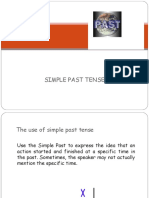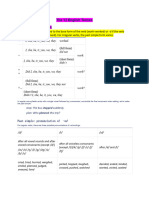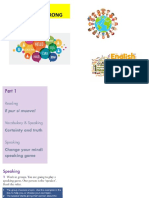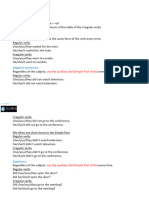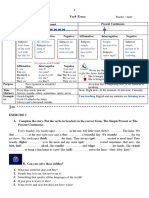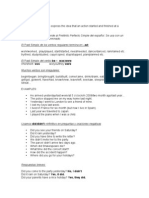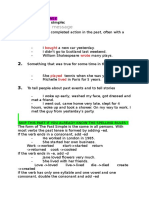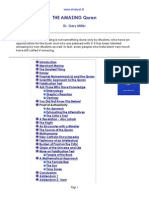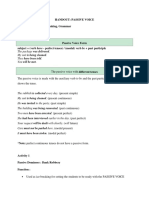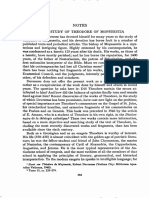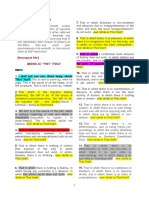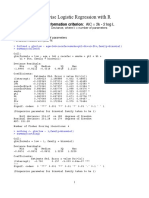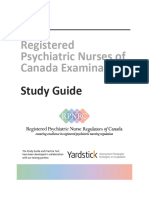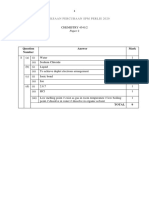0% found this document useful (0 votes)
54 views3 pagesPast Simple
The document discusses the past simple tense in English. It provides examples of how to form the past simple of regular and irregular verbs. It also discusses the main uses of the past simple tense, which is for finished actions in the past. Finally, it provides examples of how to form positive and negative sentences and ask questions in the past simple tense.
Uploaded by
Rumyana PopovaCopyright
© © All Rights Reserved
We take content rights seriously. If you suspect this is your content, claim it here.
Available Formats
Download as PDF, TXT or read online on Scribd
0% found this document useful (0 votes)
54 views3 pagesPast Simple
The document discusses the past simple tense in English. It provides examples of how to form the past simple of regular and irregular verbs. It also discusses the main uses of the past simple tense, which is for finished actions in the past. Finally, it provides examples of how to form positive and negative sentences and ask questions in the past simple tense.
Uploaded by
Rumyana PopovaCopyright
© © All Rights Reserved
We take content rights seriously. If you suspect this is your content, claim it here.
Available Formats
Download as PDF, TXT or read online on Scribd
/ 3















